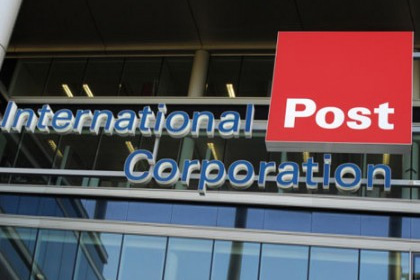
IPC: The continuous expansion of the SMMS programme clearly indicates the willingness of postal operators to work together

On 29 November, the IPC Board approved the 2022 results of the new IPC Sustainability Measurement and Management System (SMMS) compared to the 2019 baseline for the participating postal operators.
The results show a slight increase in the overall Sustainability Management Proficiency (SMP) score for all the posts participating in the programme, after 2021 results had been restated taking into account the new participants that joined the programme in reporting year 2022. Posts are making good progress towards their 2030 targets regarding CO2 emissions reduction, renewable energy use, alternative fuel vehicles and waste separation for recycling or reuse. The SMMS results are published in IPC’s annual Postal Sector Sustainability Results, available as an online-only report.
Holger Winklbauer, IPC Chief Executive Officer commented: “The continuous expansion of the SMMS programme clearly indicates the willingness of postal operators to work together to reduce their carbon footprint and the motivation to learn from each other’s best practices. Noting the addition of new participants, the programme results keep improving, and makes us look at the future with a positive mindset, as collaboration continues.”
Posts pursue the road towards 2030 joint targets
As part of their collective 2030 targets, posts participating in the SMMS programme strive to have 75% of energy used in their buildings originating from renewable sources, 50% of their vehicle fleet composed of alternative fuel vehicles, with at least 25% of the total fleet to be electric vehicles, and 75% of group waste to be recycled or reused.
The group has successfully increased its use of renewable electricity from 14% of total electricity use in 2012 to 38% in 2022. The SMMS group has grown its collective alternative fuel vehicle fleet from 65,000 (12% of total vehicles) in 2012 to 165,000 (26%) in 2022, and 127,000 (20%) are now Electric vehicles (EVs).
In 2022, the group reused or recycled an impressive 61% of total non-hazardous waste, a 14% increase since 2019, and moving positively towards the 75% target.
Postal operators continue to reduce CO2 emissions
In 2022, posts reported a 35% reduction in annual Scope 1 and 2 carbon emissions compared to a 2008 baseline. Since 2008, the group’s cumulative reduction in scope 1 and 2 emissions now equals 28.7 million tonnes CO2. For full scope 1,2 and 3 reporting please refer to the online report.
___________________________________________________________________
(1) In reporting year 2022, participating posts were: An Post, Austrian Post, Australian Postal Corp, bpost, Correos, Croatian Post, CTT Portugal Post, DHL Group, Le Groupe La Poste, New Zealand Post Group, POST Luxembourg, Poste Italiane, Posten Norge, Posti, PostNL, Omniva, Pos Malaysia, PostNord Denmark, PostNord Sweden, Royal Mail Group Plc, South African Post Office, Swiss Post, United States Postal Service.
The Sustainability Measurement and Management System (SMMS)
The IPC SMMS programme was launched in 2019 to address the sustainability objectives of the postal sector for the next ten years, aligned with the Sustainable Development Goals (SDGs). It expands on the 2009-2019 Environmental Measurement and Monitoring System (EMMS) programme, which focused on reducing carbon emissions, and broadens the remit to the seven sustainability focus areas most relevant for the postal sector: Health and safety, Learning and development, Resource efficiency, Climate change, Air quality, Circular economy and Sustainable procurement. These focus areas are aligned with the following UN SDGs, identified by our stakeholders and SMMS participants as most relevant to the postal sector:
SDG 8 – Decent work and economic growthSDG 9 – Industry, innovation and infrastructureSDG 11 – Sustainable cities and communitiesSDG 12 – Responsible consumption and productionSDG 13 – Climate action
As such, the SMMS programme is designed to further the postal sector’s contribution to global sustainable development, focusing on the areas in which it can have the most impact.









